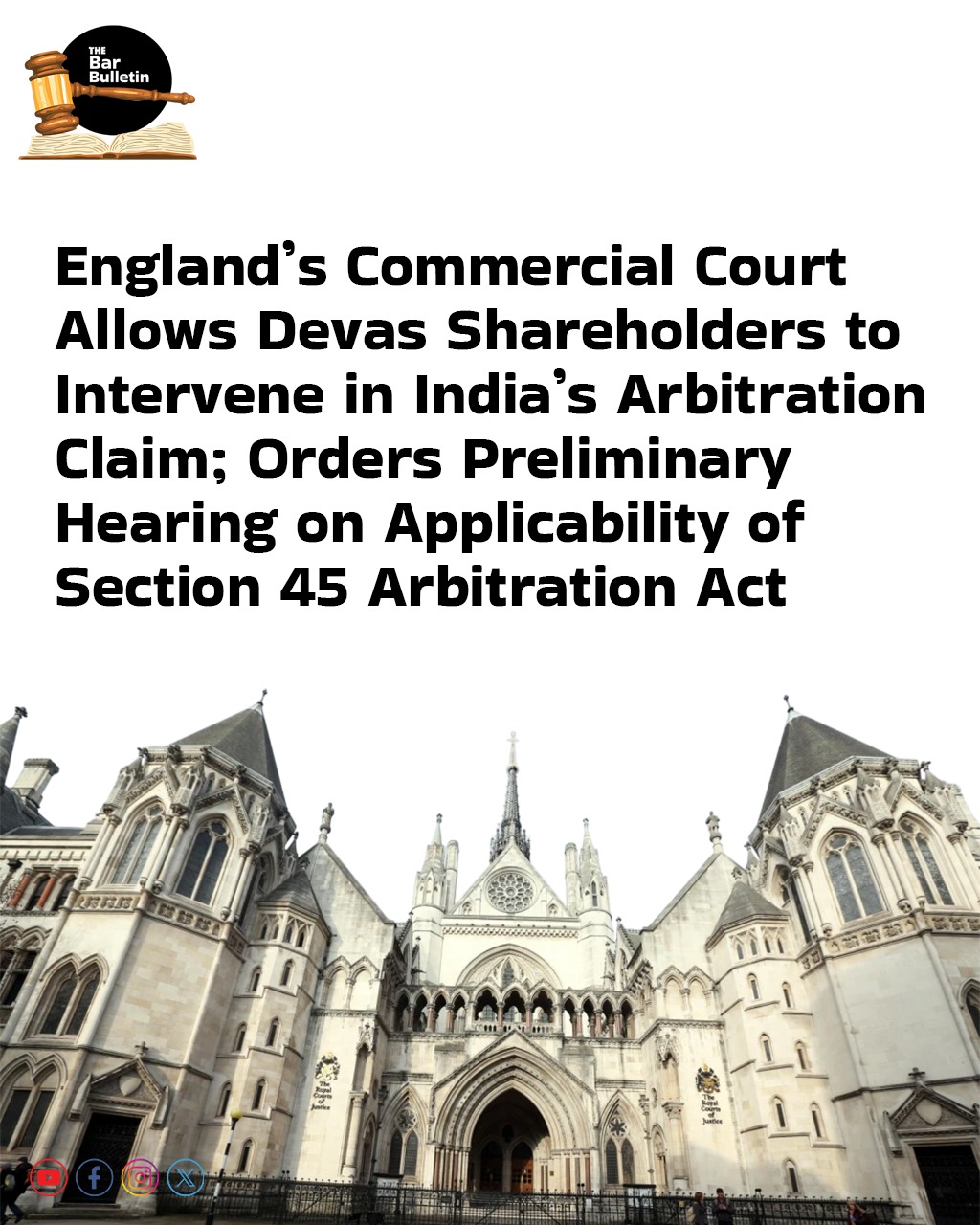The High Court of Justice (Commercial Court), England & Wales, has allowed a group of directors and shareholders of three Mauritian companies—CC/Devas (Mauritius) Ltd, Telcom Devas Mauritius Ltd, and Devas Employees Mauritius Pvt Ltd to formally intervene in an arbitration-related claim initiated by the Republic of India.
The Republic of India had filed an application under Section 45 of the UK Arbitration Act, 1996, seeking a determination on whether an arbitral tribunal seated in London is bound to apply only Mauritian law to decide who is authorised to represent the Mauritian companies in an ongoing BIT arbitration (BIT-2 Arbitration). The arbitration arises from India’s alleged treaty breach following the forced liquidation of Devas Multimedia Pvt Ltd, a company in which the Mauritian entities were shareholders.
India contended that only the court-appointed Administrator of the Mauritian companies under Mauritian insolvency law has authority to appoint counsel, and thus, the tribunal erred in recognising Gibson Dunn & Crutcher LLP, who act on the instructions of the directors/shareholders, as the companies’ legal representatives. The tribunal had earlier declined to recognise the Administrator’s authority, citing due process and public policy concerns under international and English law.
In the present proceedings, the Court permitted intervention by the shareholder-instructed group, reasoning that their interests materially differ from those of the Administrator and that they must be heard in the matter to claim costs and ensure a fair hearing. The Court also directed that four key preliminary issues raised by the intervenors including the threshold jurisdiction under Section 45 and whether India’s application is a disguised appeal against a procedural tribunal order be heard first, as they may render India’s claim non-maintainable.
The Court observed that if these preliminary issues succeed, it would prevent unnecessary judicial interference in arbitral processes, thus upholding the core principles of the Arbitration Act. Accordingly, the Court fixed a one-day hearing for the preliminary issues and deferred adjudication on the substantive question of law.
![]()



